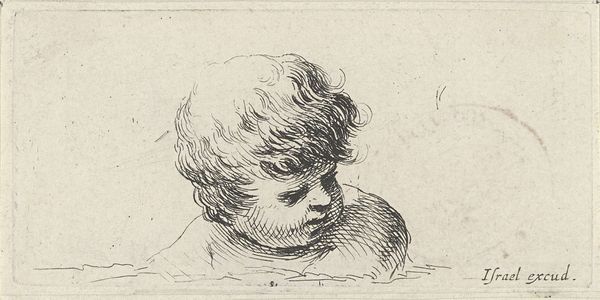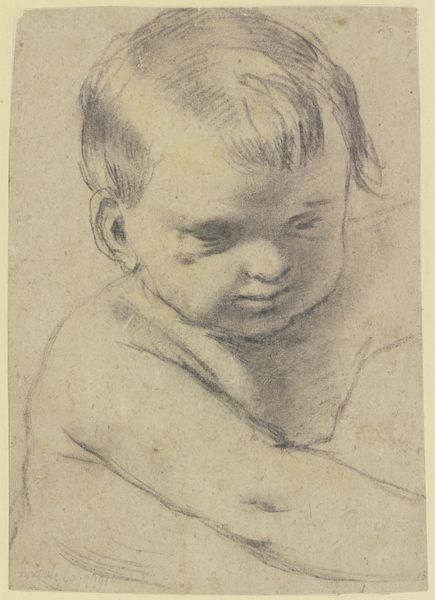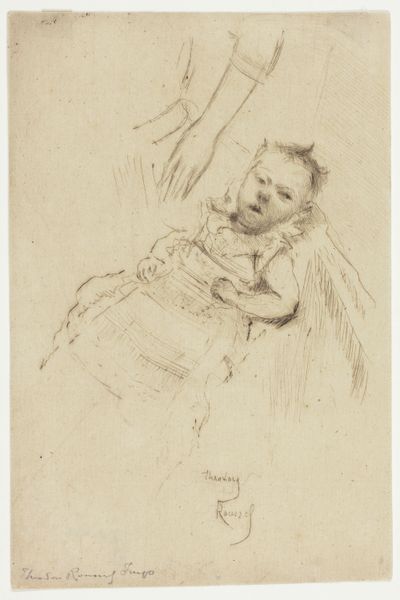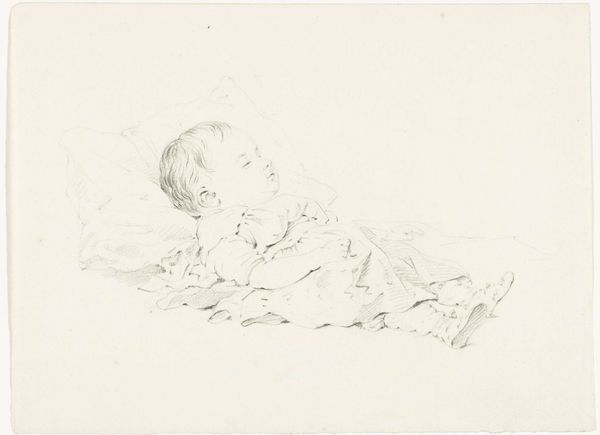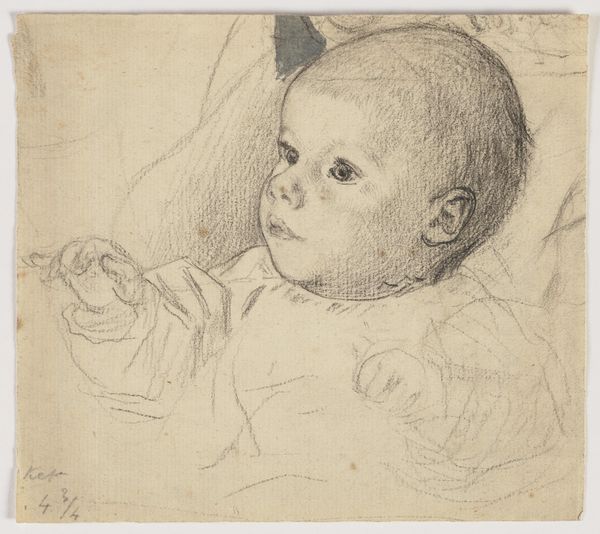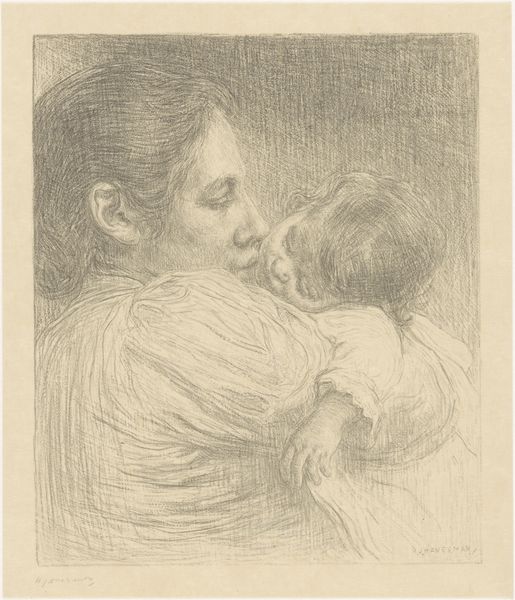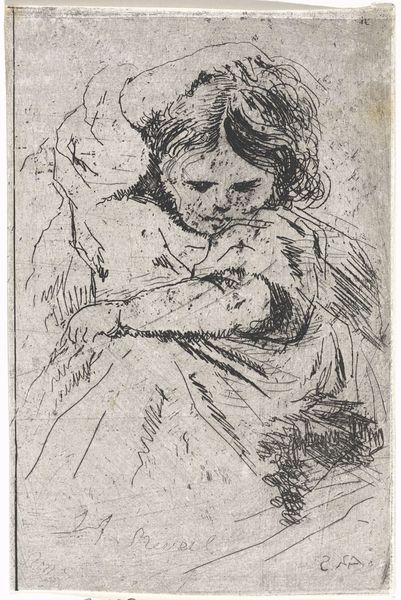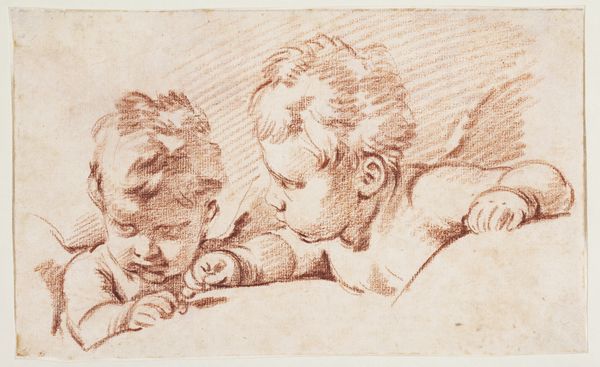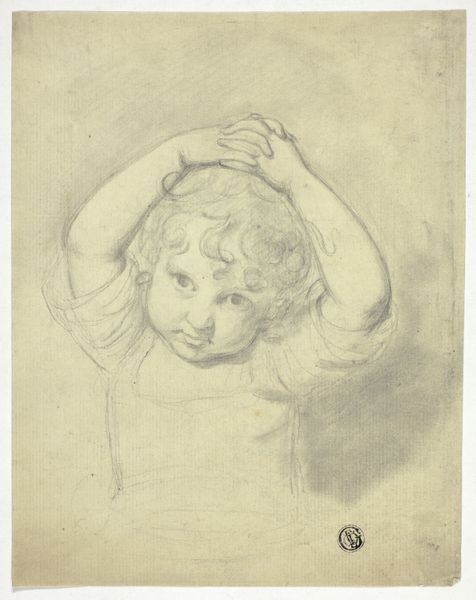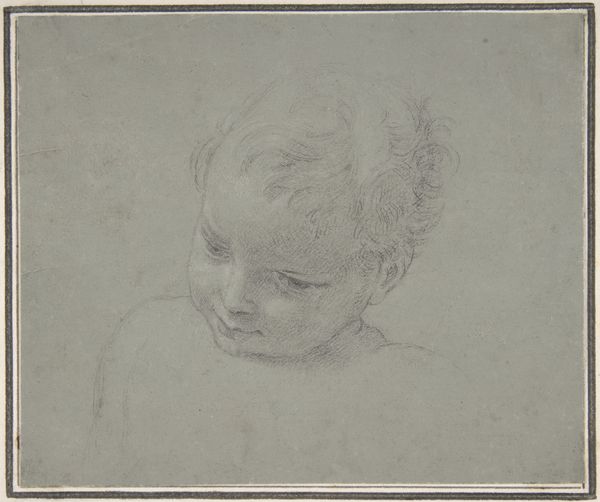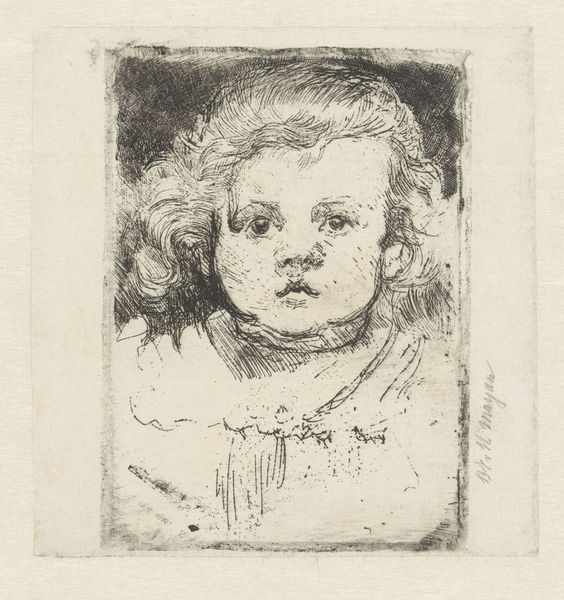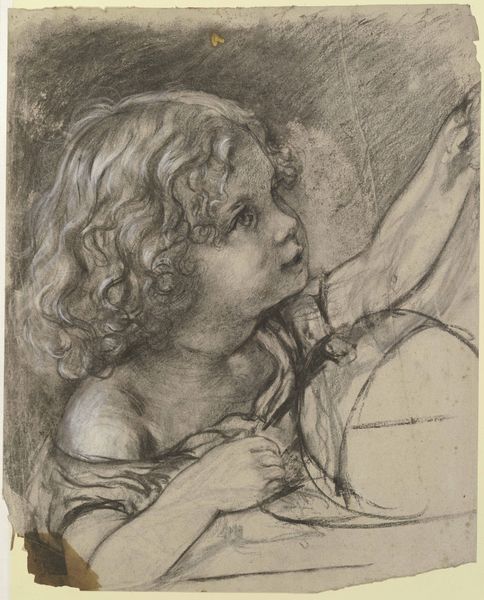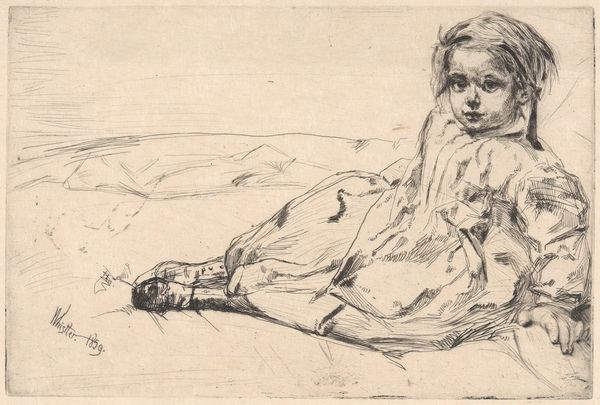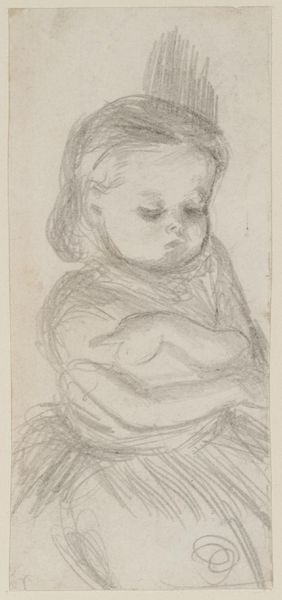
Plate 13: bust of a child with his left hand near to his chin, turned towards the left, from 'Various heads and figures' (Diverses têtes et figures) 1650
0:00
0:00
drawing, print, etching
#
portrait
#
drawing
#
baroque
# print
#
etching
#
figuration
#
child
#
pencil drawing
#
line
#
italian-renaissance
Dimensions: Sheet: 2 1/2 x 3 1/4 in. (6.4 x 8.3 cm)
Copyright: Public Domain
Editor: So, here we have Stefano della Bella’s "Plate 13: bust of a child…", an etching from 1650. The first thing that strikes me is the tenderness in this portrait, and almost melancholy mood. How do you interpret this work, given its historical context? Curator: It's a touching image, isn’t it? What really grabs my attention is how della Bella captures a moment of childhood vulnerability within the constraints of Baroque portraiture. This was a period grappling with societal structures and individual identities. Consider the limited roles and expectations placed upon children, especially in aristocratic circles, from which this child likely came. Editor: That makes sense. There's a performative aspect to Baroque portraiture, right? Even in an image that feels this intimate? Curator: Absolutely. What societal roles might this child have been preparing for? Whose gaze was he being trained to meet, and under what expectations? How does this depiction both reflect and perhaps subvert those expectations, even subtly? Editor: Hmm, it makes you wonder about the pressures on even very young children during this period... It seems that innocence could be easily overshadowed by social expectation. Curator: Precisely. And how does the medium of etching itself – with its lines and shadows – contribute to our understanding of that tension? The very act of creating this image is a social one. Editor: I see what you mean. Looking at it now, I notice how the lines seem almost to cage the child's face, hinting at the confines of his future role. Curator: Indeed! Art is never created in a vacuum. Examining historical context alongside gender, class, and even the materiality helps us interpret and create conversations around works like this. Editor: Thank you; it really changes my perspective. I will never see Baroque art the same way!
Comments
No comments
Be the first to comment and join the conversation on the ultimate creative platform.
